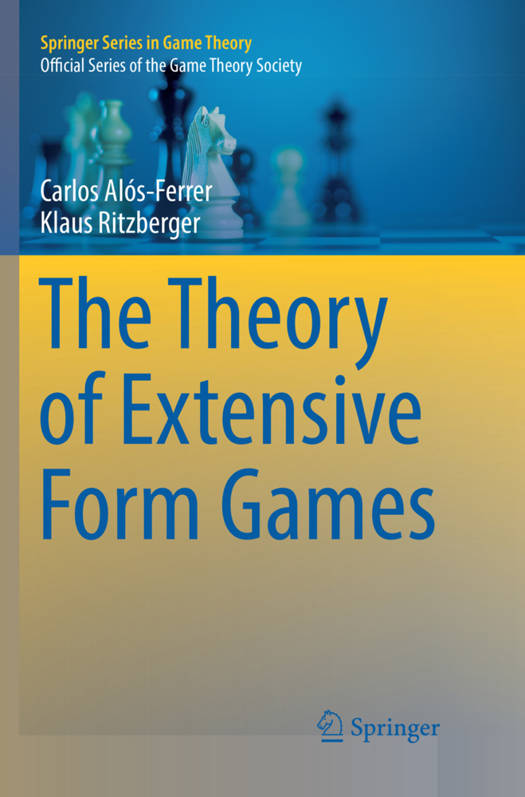
- Afhalen na 1 uur in een winkel met voorraad
- Gratis thuislevering in België vanaf € 30
- Ruim aanbod met 7 miljoen producten
- Afhalen na 1 uur in een winkel met voorraad
- Gratis thuislevering in België vanaf € 30
- Ruim aanbod met 7 miljoen producten
Omschrijving
This book treats extensive form game theory in full generality. It provides a framework that does not rely on any finiteness assumptions at all, yet covers the finite case. The presentation starts by identifying the appropriate concept of a game tree. This concept represents a synthesis of earlier approaches, including the graph-theoretical and the decision-theoretical ones. It then provides a general model of sequential, interpersonal decision making, called extensive decision problems. Extensive forms are a special case thereof, which is such that all strategy profiles induce outcomes and do so uniquely. Requiring the existence of immediate predecessors yields discrete extensive forms, which are still general enough to cover almost all applications. The treatment culminates in a characterization of the topologies on the plays of the game tree that admit equilibrium analysis.
Specificaties
Betrokkenen
- Auteur(s):
- Uitgeverij:
Inhoud
- Aantal bladzijden:
- 239
- Taal:
- Engels
- Reeks:
Eigenschappen
- Productcode (EAN):
- 9783662570500
- Verschijningsdatum:
- 7/06/2018
- Uitvoering:
- Paperback
- Formaat:
- Trade paperback (VS)
- Afmetingen:
- 156 mm x 234 mm
- Gewicht:
- 362 g

Alleen bij Standaard Boekhandel
Beoordelingen
We publiceren alleen reviews die voldoen aan de voorwaarden voor reviews. Bekijk onze voorwaarden voor reviews.











